![]()
Social policy is, “public policy and practice in the areas of health care, human services, criminal justice, inequality, education, and labor” – The Malcolm Wiener Center for Social Policy at Harvard University
Social Policy is made up of the directions, laws, principles, and actions that alter living conditions which control human welfare and life quality.
Social Policy is a field that encompasses political science, psychology, economics, philosophy, and sociology, among other disciplines. It usually applies these studies to government or other civic organizations. Graduates will go on to work for government agencies, think tanks, consulting firms, and any other organization or agency that impacts social policy on a local, state or federal level.
After graduating from a Social Policy program you might find yourself working in social services, drafting white papers, influencing politicians, or in another area of politics or social policy you’re passionate about. In general, your work will directly impact the quality of life and the welfare of people in a variety of environments, who come from various ethnic and socioeconomic backgrounds.
These degrees are designed for versatile creatives that want to make a positive impact on communities both small and large.
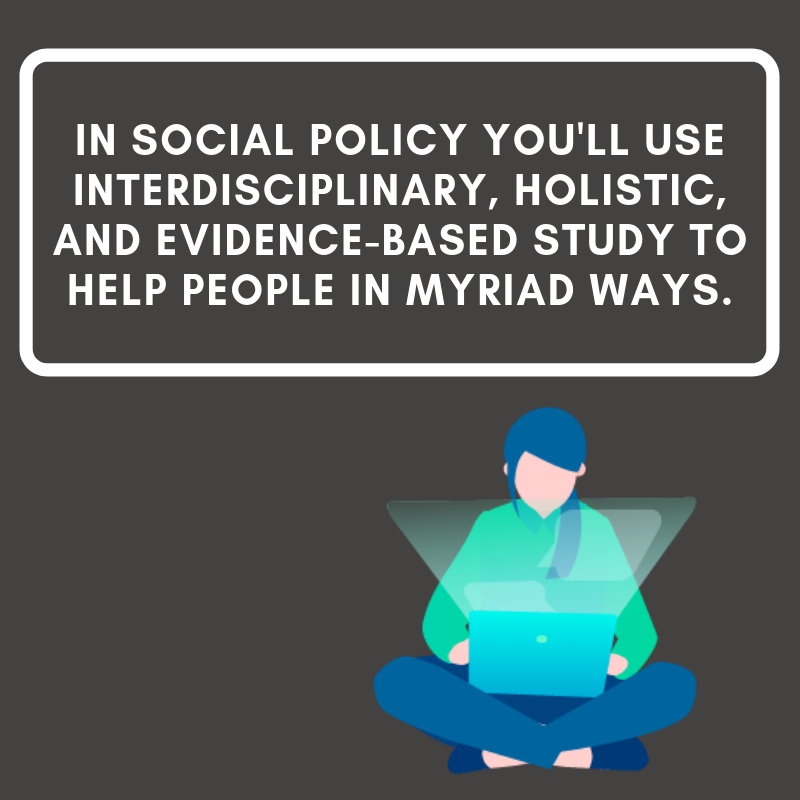
You might work to fight against racism or the discrimination against LGBTQ people. Or perhaps you’ll work on the legal status of abortion, prostitution, guns, recreational drugs, among other domestic and health policies.
Social Policy often focuses on what’s referred to as “wicked problems.” Wicked doesn’t refer to evil in this case, but instead to the complexity and difficulty of solving a particularly entrenched social issue that has no clear, simple solution.
We hear a lot about the “welfare state” today, much of it negative. Many people believe that the beneficiaries of social programs and policies are abusing the government and society to claim benefits and privileges that aren’t extended to others. People get upset about the idea of paying taxes that go to benefits they won’t enjoy. But the concept of using government to take care of each other is a beautiful one and extends far back in human history.
In the 6th century the second caliph, Umar ibn al-Khattāb, used collections and government resources to offer income support, pensions, child benefits, and other funds to assist non-Muslims and Muslims alike. These policies specifically targeted the poor, children, the elderly, orphans, widows, and disabled people.
In the West sociologist Auguste Comte and social researcher Charles Booth fought hard for social policies in five industrialized countries after the Industrial Revolution. All of this work eventually led into the New Deal in America between 1933-35, and the National Health Service Act in England in 1946.
While there may be bloating and redundancies in some welfare programs, their core mission is something humanity has concluded time and time again, in countries all around the world: we can not simply abandon people whose basic needs aren’t met in our society.
You can be part of improving social policies and getting them enacted. Your work will, in turn, improve and in some cases, save lives. It’s some of the most critical work anyone can do.
To get started you’ll need to earn a degree in Social Policy or a related field.
In this guide we’ll delve into the available Social Policy degrees, exploring the various specializations and degree levels in the field. We’ll also share what we’ve done at Degree Query to help you find a Social Policy degree that’s right for you (or decide another degree discipline is a better option. While looking through the guide, please ask yourself and consider:
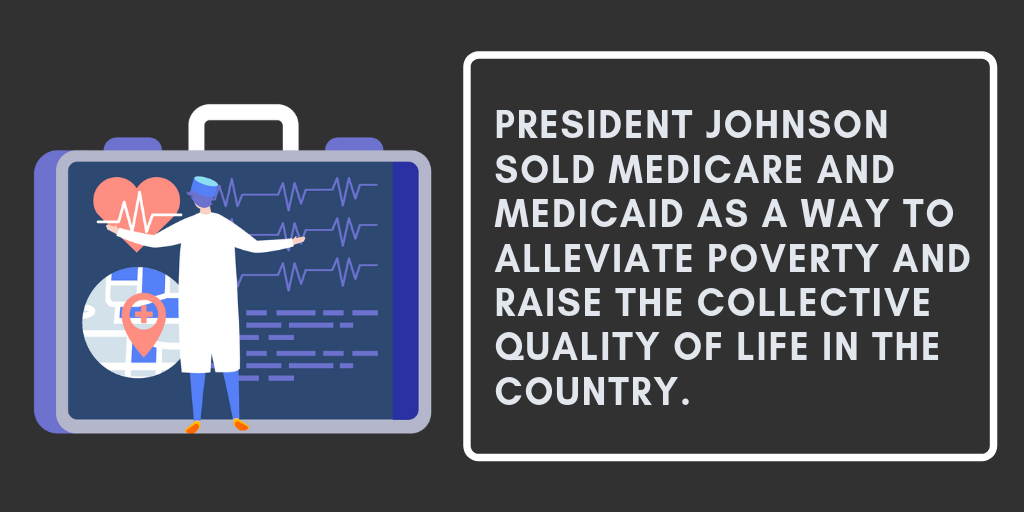
- What are your longterm career objectives, and how can a social policy degree help you reach them?
- What degree level have you completed so far in higher education? What position do you want in the field, and what degree level would you need to be qualified for it?
- You don’t have to know precisely what you want to do in social policy, but a general idea is helpful. Do you want to work in a government agency? A think tank? Consulting?
- How much can you pay in tuition and other associated costs for a particular social policy degree you’re looking at, and how much would you have to borrow to pay for one?
- There are many costs associated with specific social policy programs. They depend on the school offering the degree, the delivery format you choose from it, scholarships you might qualify for, loans you take out, and many other factors.
- It’s always optimal to choose a social policy program from a school you can afford instead of borrowing to attend one. However, for most people, this is unrealistic. So if you must borrow money to pay for a program, make sure to take public loans over private ones whenever possible.
- When searching for schools, always choose between affordable, accredited, and nonprofit instead of for-profit, expensive, and poorly accredited programs.
- How much time can you commit to a social policy degree every day, week, and overall before completing it? Different social policy programs offer vastly different formats in which you earn your degree.
- Speaking of which: what’s the best delivery format for you? Do you want to attend school part-time, full-time, on-campus, online or in a mixture of online and traditional on-campus education?
- Where do you want to live and work after completing a social policy degree? Different states and areas have different needs for social policy professionals. For example, Washington D.C., and big cities like New York and Los Angeles have greater needs for people in these roles than areas with smaller populations.
- Where you earn your degree can impact the local connections and networking you can do that might translate to choice job positions after you graduate.
- What is your current educational and career experience? How will a social policy program build upon your strengths and help you learn to make up for your weaknesses?
- What are the available specializations in social policy degree programs? How can a focus or specialization in a social policy program give you the education you need to reach your goals?
This is just a start to the considerations and questions that should guide your search for a social policy degree that meets your needs. While you search for a degree, it’s helpful to write out what you want, what qualifications you have that will assist your application process. Also consider what your needs, parameters, and obstacles to earning a degree are. Make sure to add any questions or considerations to this list that are specific for you.
Before we explore what we’ve done to help you in your search, and the degree levels and specializations that exist in social policy, let’s explore what you’ll get from completing one of these degrees:
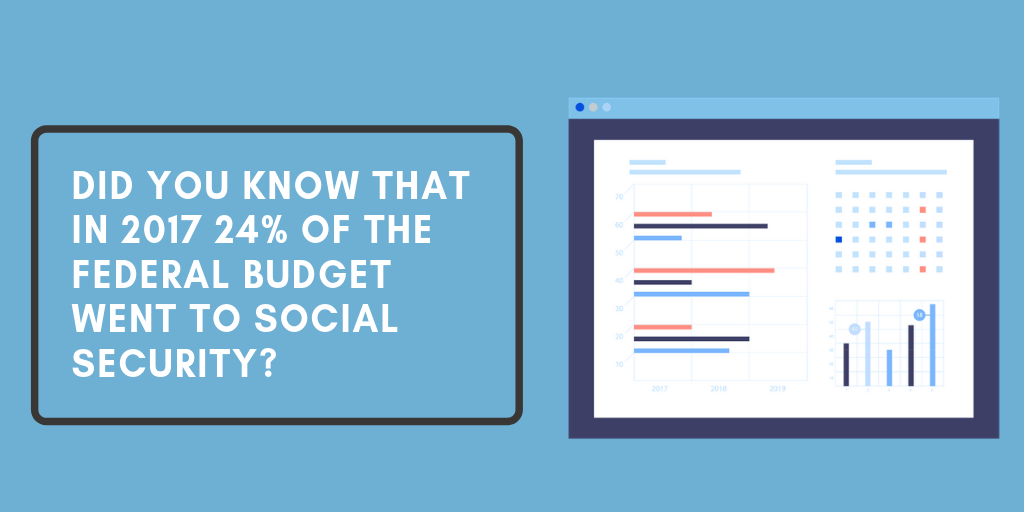
Social Policy Degrees Require and Build Skills and Aptitudes In
- Patience: Social Policy can move extremely slowly. You might not achieve the results you want immediately, or at all. But to be successful, you’ll have to stick with your projects throughout serious adversity and interests working to prevent you from being successful.
- Compassion: You might think you care about people who need your help, but you’ll have to greatly expand that ability within yourself to be successful in social policy. Building up your compassion will pay dividends throughout your life because compassion is a hard switch to turn off, especially when you’re doing it professionally.
- Empathy: As a social policy professional, you’ll often be confronted with people and situations that are outside of your personal life experience. Understanding people and their differences from you will make you far more successful in these roles than those who assume they intrinsically understand others.
- Understanding Your Limitations: You can get burnt out in these roles, especially when you face a bureaucracy and special interests that prevent you from helping others. You’ll need to be kind to yourself and understand what you’re not good at, and that your failures aren’t yours alone.
- Cooperation: Nothing in social policy gets done without the help of others. You’ll need the help of lawmakers, other advocates, people you’re working to help, and so many others to achieve your goals in the field.
- Doggedness: Social Policy professionals don’t give up. They fight hard for the world they want to build and make sure it happens no matter how bleak things can look at any given moment.
- Idealistic Execution: In these roles, you’ll need to be idealistic in a world that prizes brutality and pragmatism. But successful social policy professionals aren’t just idealists; they’re canny, effective practitioners that make their ideals manifest in reality.
You won’t have to do it all by yourself. Between your cohort, professors, family, and friends, you’ll have plenty of help in your quest to earn a social policy degree and be successful in the field. We’ve also done significant work to help you find the right degree for you:
How Can We Help You Find the Right Social Policy Degree for You?
Here at Degree Query we’ve done extensive work to assist you in finding the best degree for you. We’ve ranked schools, degree types, and jobs. We’ve answered frequently asked questions about education, specific degrees, job opportunities, and much more. We’ve also created tools like our compare careers matrix, which helps you figure out the best educational path for your needs and desires. Some of the content that we’ve produced that looks at social policy, and related degrees includes the following:
Rankings
- 50 Best Online Master’s Degrees 2019
- 50 Best Online Associate’s Degrees 2019
- 50 Best Online Degrees for 2019
- Top 50 Degrees For Changing The World
- Top 50 Degrees for the Future
- Top 10 Highest Paying Social Science Jobs
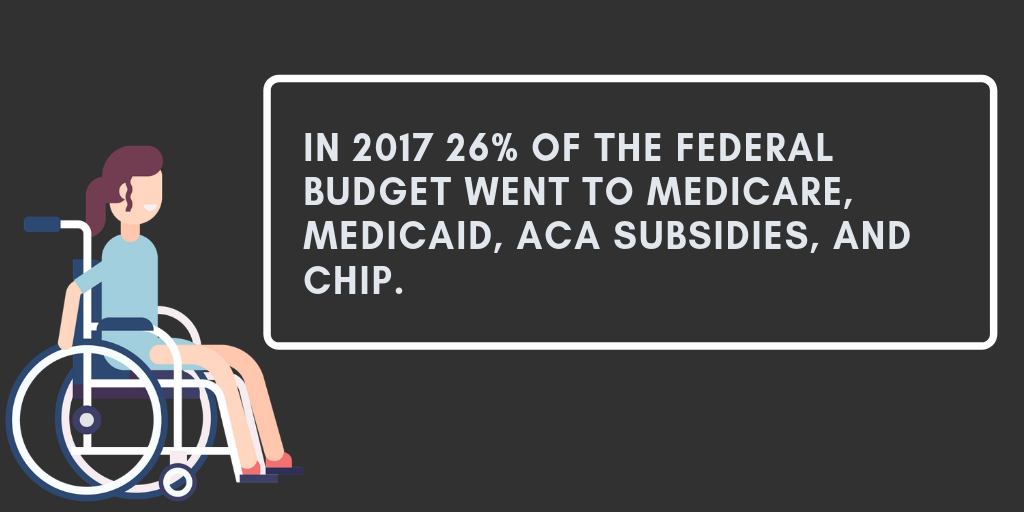
Frequently Asked Questions
- What Degree do I need to be a Policy Analyst?
- What is the Difference in Legal Studies and a Law Degree?
- What Degree Do People With a Job in Budget Analysis Have?
- What Can I Do With a Sociology Degree?
- What Can I Do with an American Studies Degree?
- What Can I Do With a Social Work Degree?
- What Can I Do With a Sociology Degree?
This is just some of the work we’ve done that will help you in the worlds of social policy, government, social work, policy analysis, and the other fields that surround and interact with this discipline. Social Policy and its related fields might not be for you. Try to explore your aptitudes and goals, and don’t forget to check out our compare careers matrix to explore your options. If you find any schools or programs through our rankings that you feel are a good fit, you can always email their support staff directly to ask for more information about the program and school itself. You’ll likely get instrumental help in your selection and application process.
Now let’s take a look at the different levels of social policy degrees and what they’ll get you ready to do:
What are the Different Levels of Social Policy Degrees?
Social Policy degrees are rarer than some related degree programs like Public Policy, Public Administration, Social and Community Services, Sociology, and Social Work Policy programs. All of these degree types have programs that can lead to positions and careers in Social Policy. For this guide, we’ll label them Social Policy degrees, but in your search make sure to include some of these other degree types. Try not to get fixated on the title of a degree. Instead, look at what its curriculum and training are in, and the positions graduates from it often go on to. That way you can determine whether it’s right for your goals in increasing human welfare.
Associates in Social Policy
In these programs you’ll look at human behavior, psychology, interactions, and relationships. You might study the basics of doing clinical social work, or public administration, where you’ll explore how government agencies and nonprofits work. These programs generally take two years and can often be completed online, or through a community or junior college, saving you time and money. Graduates will be prepared to do entry-level work in the field or continue their education at the next level:
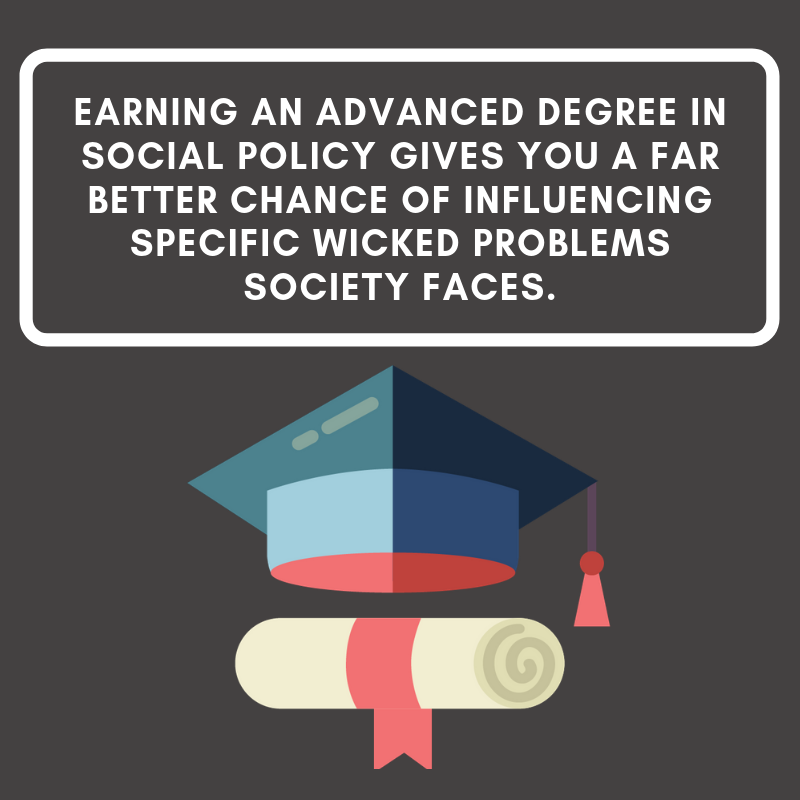
Bachelors in Social Policy
In these four-year programs you’ll delve much further into the intricacies of social and public policy. You’ll learn about the law, craft policies, do analysis and research on the results of specific programs and initiatives, and much more. Graduates will be able to work in government agencies, nonprofits, or to lobby on behalf of particular interests. Most entry-level social or public policy programs require a Bachelor’s degree. However, if you want to reach advanced, supervisory positions in the field you may need to continue your education.
Master’s in Social Policy
These programs generally take one to two years to complete. Graduating from a Social Policy program like this one is a luxury that will save you time and money. You’ll then graduate with a very impressive credential in the field that gives you serious utility in where you work and what you do. You’ll learn about policy creation, implementation, study how government and nonprofit agencies work, look at what makes policies successful, and so much more. Graduates will be qualified to work in management or supervisory positions at think tanks, government agencies, advocacy groups, nonprofits, and much more.
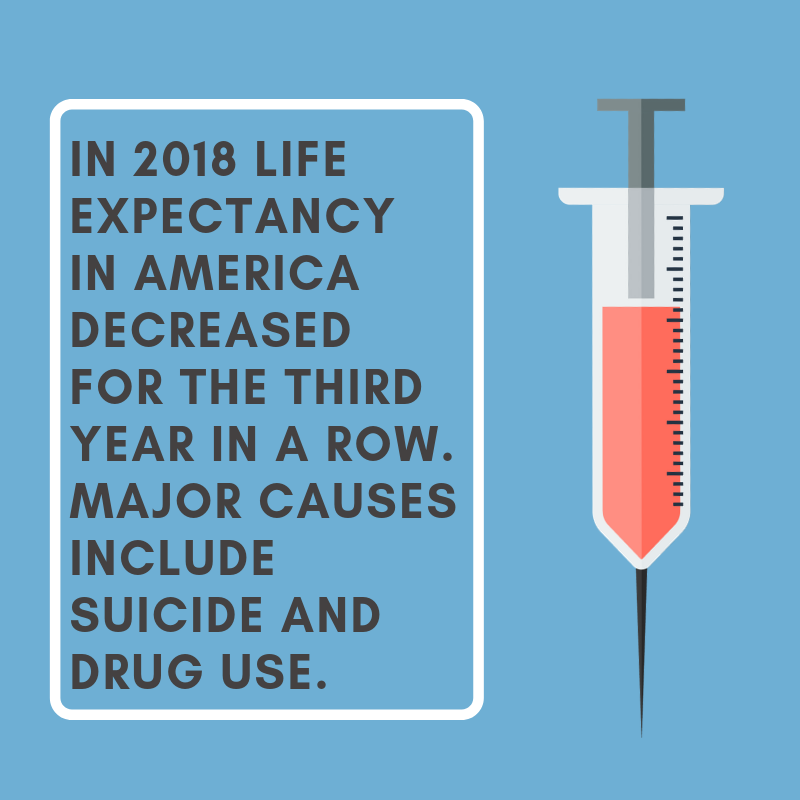
Doctorates in Social Policy
These programs meld government and sociology to give you a terminal education in the field. You’ll explore public policy, economics, political science, and more to understand social issues and figure out solutions to them. These programs generally take between three and five years to complete and lead to a dissertation and its defense, or some other culminating project that demonstrates what you’ve learned in the program. Graduates will be prepared to work as analysts, advocates, managers, and academics in the world of social policy and public service.
In addition to these degree levels there are a variety of specializations in the field of social policy and its related disciplines that you can choose. Here are some of your options:
What are the Different Specializations in Social Policy
Social Health Policy
In these programs you’ll focus on the health policies that govern care in this country. You’ll become well versed in the history that’s led to these policies, how they’re failing or underserving many people, and figure out where you fit into fixing these issues and providing better care to more people.
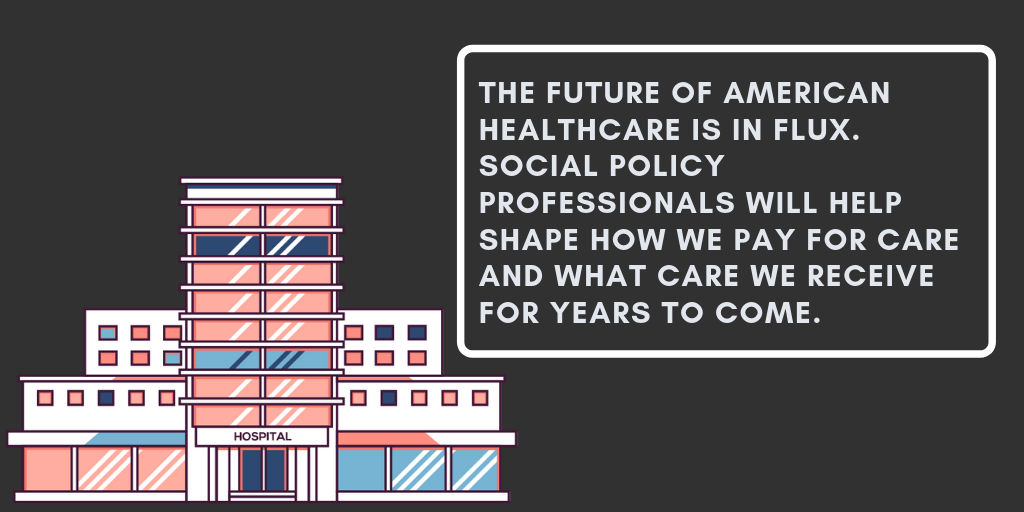
Development Policy
In these concentrations you’ll look at how policy is drawn up, enacted, and measured. You’ll do significant analysis, research, and focus on incredibly interdisciplinary coursework to prepare to work in policy in a range of roles, and on many different issues.
Environment and Energy Policy
We may be facing a climate crisis, and energy policy/energy sources continue to evolve in our country. You can be part of the leadership on these crucial issues in the future by diving into a concentration in this area. (Learn more about the 5 best careers in environmental science.)
Global Policy
Local governments and even the federal government itself aren’t prepared to deal with many of the problems that face the world today. In Global Policy programs, you’ll qualify to take your leadership to the next level, coordinating national governments to do vital work that can’t happen without international cooperation.
Social Policy Area Concentrations
Within Social Policy programs you’ll often have the option to specialize in areas like Education, Urban Development, Urban Planning, Children and Families, Crime, Race, Ethnicity, Gender, Sexual Orientation, Wealth Inequality, Welfare Programs, and other areas that you might work in as a Social Policy professional.
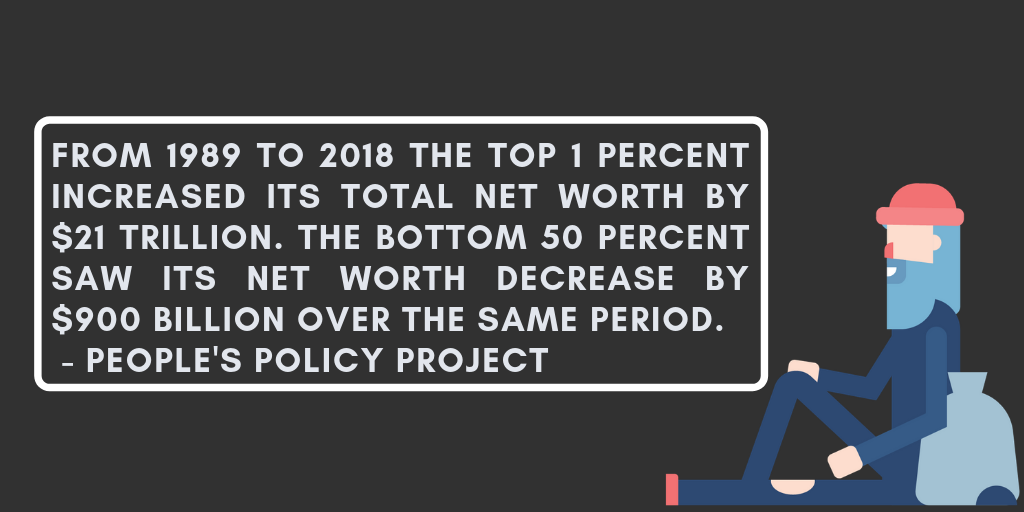
Think carefully about where you’d best fit into the world of Social Policy, and whether it’s for you.
There are so many roles in this field, and it’ll be up to you what path you take and where you land. Unlike other areas of government or social work, there are far more ways and degrees that will help you break into this field. The future is yours, and you’ll help mold it as you see fit. Let’s finish things up:
Social Policy Degrees in Conclusion
Before we wrap up, let’s explore what you’ll get out of a career in social policy. While there are many different roles in the field, The U.S. Bureau of Labor Statistics found that the average salary for government workers in 2016 was $35,009 to $45,512 for a G-7 pay grade and $102,646 to $133,444 for a G-15 pay grade. Those with graduate or doctorate degrees are much more likely to qualify for the latter pay grade.
BLS also found that the average salary for non-government workers in 2015 was $103,210 for political scientists, $109,230 for economists, $82,100 for sociologists, $70,680 for urban planners, and $136,260 for lawyers.
These are just some of the roles you’ll be prepared for during your career in social policy, depending on the degrees you earn and the specializations you take within them. Also obviously these numbers have gone up since 2015-16. BLS predicted greater future need for economists, lawyers, and urban planners in comparison to some of these other roles.
Thank you for exploring this guide, and we hope it proves useful. Social Policy professionals are indispensable to creating a better world around us, especially for the most vulnerable among us. There’s a direct relationship between a rising life quality for vulnerable people and overall societal cohesion and welfare. You can be a part of that by completing one of these programs.
Remember, whenever you find a program that seems like a good fit, it’s always useful to reach out to the school that offers it directly. Their support staff will be ready to help you in whatever ways they can.
Good luck in your education and all that you accomplish during and after it!
For Further Reading:
